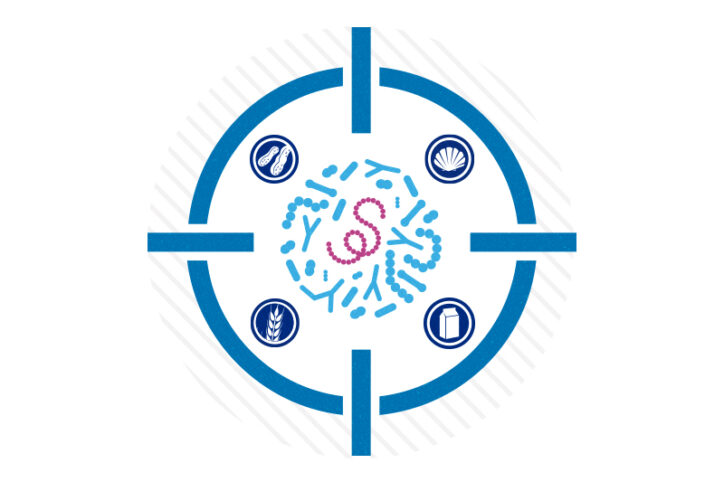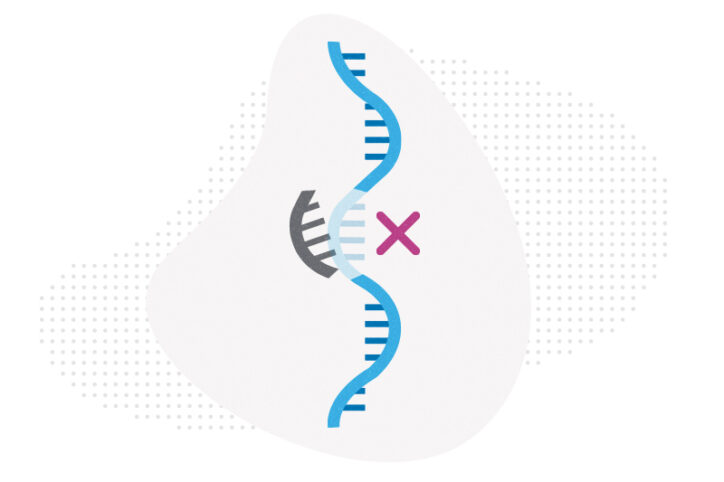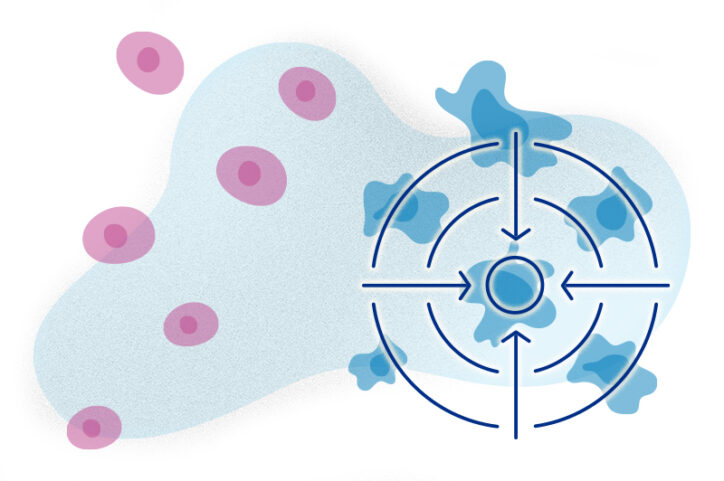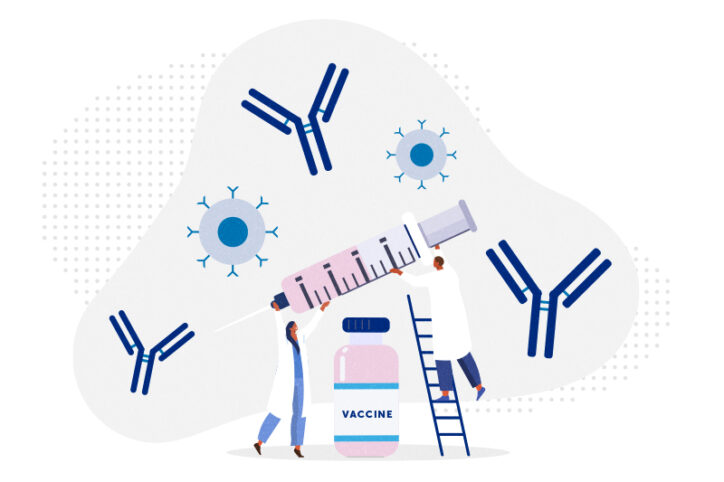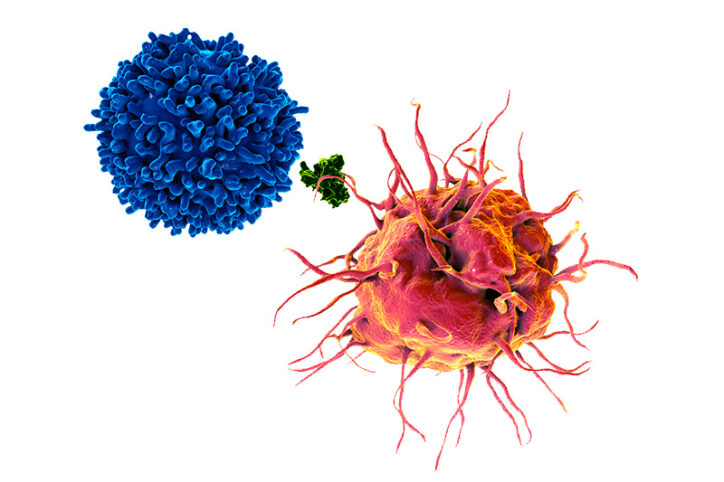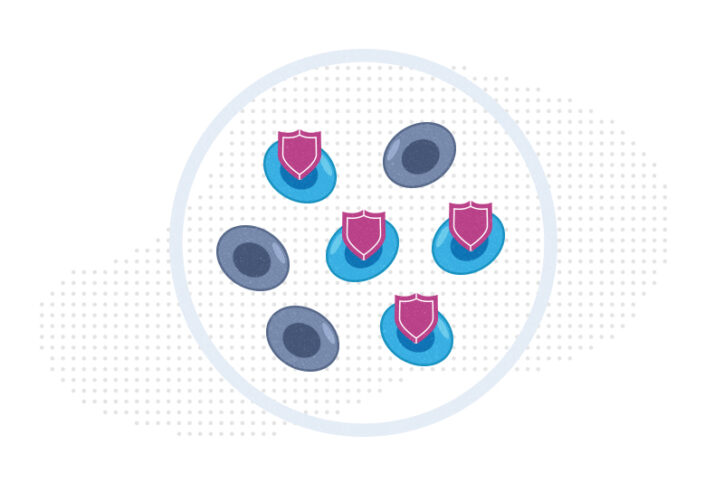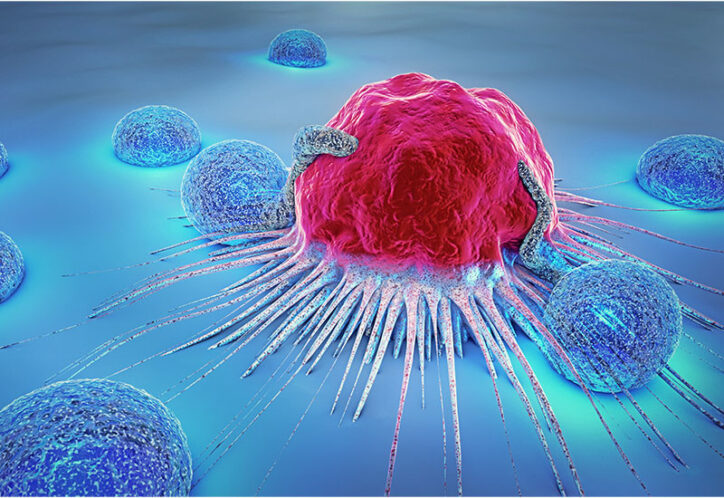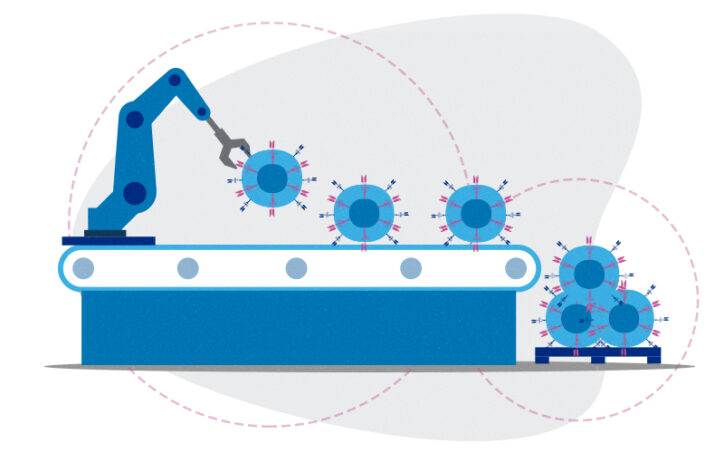Archive for immunotherapy
Could we cure or prevent food allergy by targeting an intestinal protein?
When is food simply nourishing and enjoyable, and when does it provoke an allergic reaction? The answer appears to lie in the balance of microbes that live in our intestine — and a specific protein secreted by intestinal goblet cells that influences that balance. Excess amounts of this protein, RELMß, change the profile of intestinal ... Read More about Could we cure or prevent food allergy by targeting an intestinal protein?
Tagged: allergy, immunology, immunotherapy, microbiome
A new anti-cancer strategy: Overriding tumor edits
Cancers are clever and often find ways to dodge people’s immune systems, making them hard to eradicate. Immunotherapies such as CAR-T cells and checkpoint inhibitors can sharpen the immune system’s attack and cure the cancer. But they don’t work for most solid tumors. We now know that tumors can edit their genes to evade immune ... Read More about A new anti-cancer strategy: Overriding tumor edits
Tagged: cancer, gene editing, genetics and genomics, immunotherapy
Immunotherapy for children with primary liver carcinomas: Research offers new hope
Pediatric hepatocellular carcinoma (HCC) and fibrolamellar carcinoma are rare, aggressive forms of liver cancer that typically affect adolescents and young adults. Although some immunotherapy drugs are approved by the Food and Drug Administration as first-line treatments for HCC in adults, less is known about their effectiveness in treating pediatric liver carcinomas. Now, new research led ... Read More about Immunotherapy for children with primary liver carcinomas: Research offers new hope
Tagged: cancer, immunotherapy, liver disease, research
Building better antibodies, curbing autoimmunity: New insights on B cells
When we’re vaccinated or exposed to an infection, our B cells spring into action, churning out antibodies that are increasingly potent, specific, and protective. This happens through an iterative process known as affinity maturation. Two labs at Boston Children’s Hospital have come up with different ways to enhance affinity maturation and help B cells make ... Read More about Building better antibodies, curbing autoimmunity: New insights on B cells
Exposing a tumor’s antigens to enhance immunotherapy
Successful immunotherapy for cancer involves activating a person’s own T cells to attack the tumor. But some tumors have a trick: They hide themselves from the immune system by preventing their antigens from being displayed, a necessary step in activating T cells. In new work published in Science, researchers in the Program in Cellular and ... Read More about Exposing a tumor’s antigens to enhance immunotherapy
Making immunotherapy safe for AML
Acute myeloid leukemia (AML), the second most common leukemia in children, is hard to treat and has a five-year survival rate of just 65 to 70 percent, according to the American Cancer Society. While immunotherapies like monoclonal antibodies or CAR T-cell therapy are effective for certain blood cancers, they have not been possible in AML ... Read More about Making immunotherapy safe for AML
Nanobodies from alpacas could steer immune attacks on influenza
While conventional flu vaccines are designed to anticipate the influenza strains projected to dominate in the next flu season, they’re only partially effective. And while antiviral drugs are available to treat active flu cases, the body quickly clears them, requiring high, frequent doses. Coupling one existing flu drug with a special ingredient from alpacas, the ... Read More about Nanobodies from alpacas could steer immune attacks on influenza
Tagged: drug development, flu, immunotherapy, infectious diseases, vaccines
An unexpected journey reveals a potent way to attack tumors
Research on the effects of prenatal exposure to the Zika virus has yielded an unexpected dividend: a potentially promising way to trigger natural killer (NK) cells to fight cancer. NK cells are first-responder immune cells. When enough of their activating receptors are triggered, they mobilize to kill infected, stressed, or cancerous cells at an early ... Read More about An unexpected journey reveals a potent way to attack tumors
Going out of the box to tackle pancreatic cancer
Pancreatic cancers are deadly and hard to treat, in part because they are so often detected at an advanced stage; overall five-year survival rates are about 11 percent. Two separate labs at Boston Children’s Hospital took out-of-the-box approaches to this difficult cancer, and both uncovered some very promising leads. Wiping out pancreatic tumors’ immune defense ... Read More about Going out of the box to tackle pancreatic cancer
Making ready-made CAR T cells for cancer immunotherapy
In CAR T-cell immunotherapy, T cells from a patient’s own blood are engineered to carry so-called chimeric antigen receptors (CAR) that enable the T cells to attack and kill tumor cells. While CAR-T therapy is a powerful approach for certain leukemias and lymphomas, it’s not available for many patients who need it. It can be ... Read More about Making ready-made CAR T cells for cancer immunotherapy
Tagged: cancer, car t-cell therapy, immunotherapy, leukemia, lymphoma, stem cells


